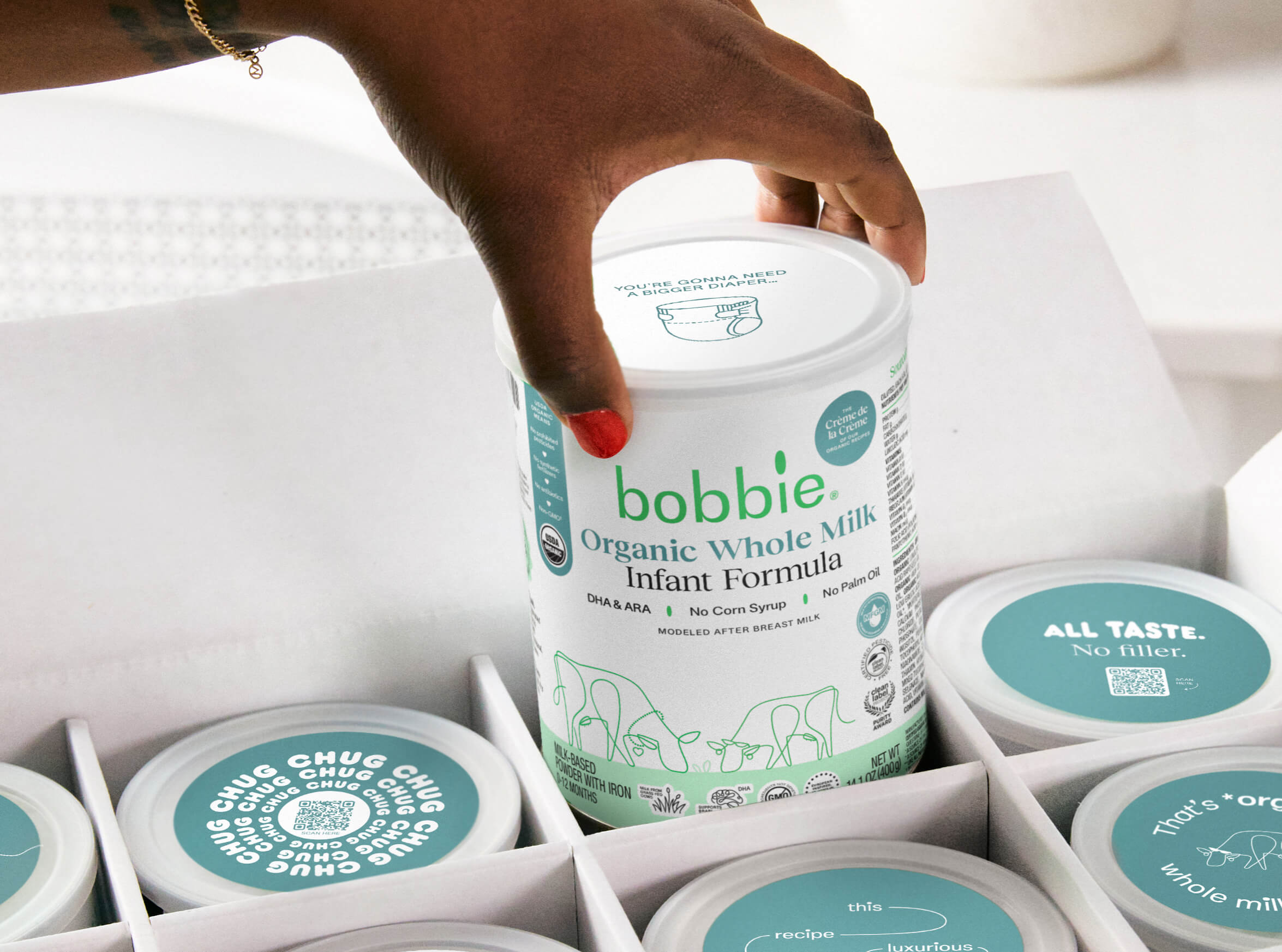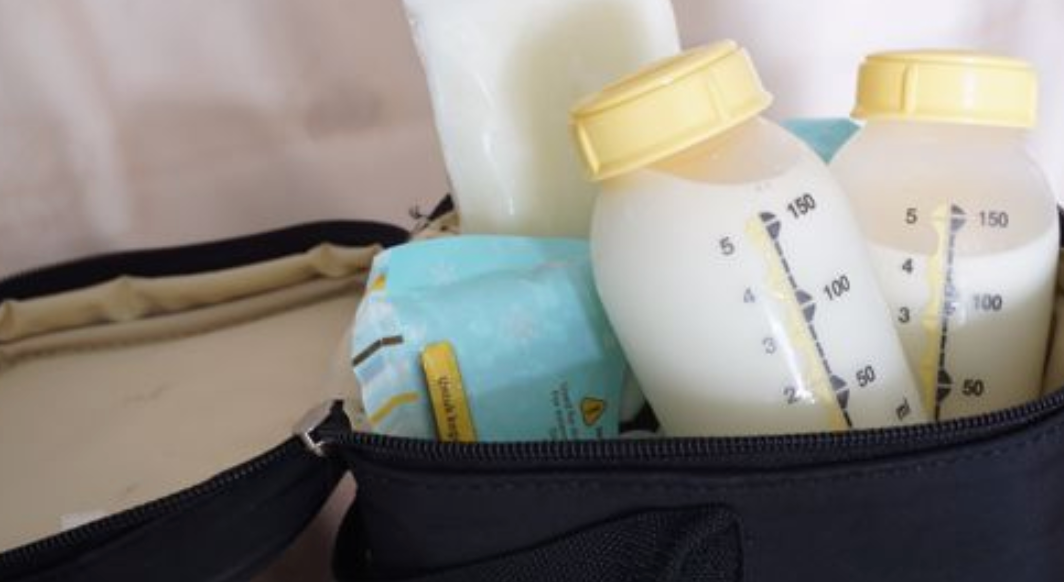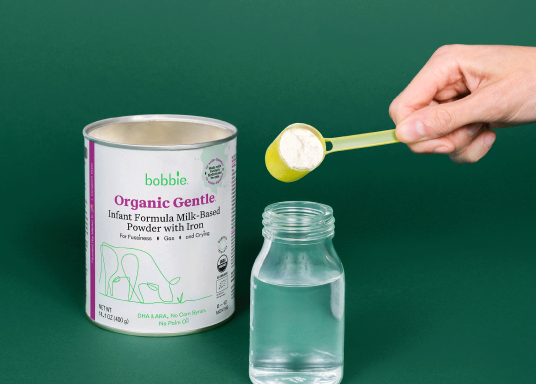Published July 24, 2024

When Should I Feed My Baby? Newborn Feeding Cues
Knowing when your newborn is hungry, full or somewhere in between can be a stressful experience for new parents. But, it doesn’t have to be! Understanding and recognizing your baby’s feeding cues can make this journey a lot smoother.
Read on to explore the essential newborn feeding cues that can help you identify when your baby needs to eat and when they’re satisfied. That way, you can ensure a better feeding experience for both you and your little one.
Understanding Your Baby's Hunger: Early, Mid, and Late Feeding Cues
Recognizing your baby's early, mid, and late hunger cues is a game-changer for stress-free feeding and a happy, healthy baby. By tuning into these signals, you’ll not only strengthen your bond but gain confidence in your parenting skills.
Let’s take a closer look at common newborn hunger cues and how to respond to them:
Recognizing Early Hunger Cues
Early hunger cues are the subtle baby signs that your little one is starting to feel hungry. If you recognize them, you can feed your baby before they become distressed. How can you tell? The signals include:
- Rooting (i.e., turning their head toward the breast or bottle)
- Sucking on their hands or fingers
- Lip-smacking
- Opening and closing the mouth
By responding quickly to these early cues and offering your baby the breast or bottle, you help establish a calm and relaxed feeding experience.
Identifying Mid-Hunger Cues
Mid-hunger cues start to become more noticeable and indicate that your baby is becoming hungrier. You'll want to respond to these cues before they escalate to late hunger cues. Some of the signs to watch for include:
- Fidgeting
- Fussing
- Increased physical activity
- Seeking out the breast or bottle more actively
When you notice mid-hunger cues, prepare to feed your baby as soon as possible — before they become too upset.
Addressing Late Hunger Cues
Late hunger cues are distress signals indicating that your baby is very hungry and may be harder to calm. At this stage, you might notice:
- Crying
- Turning red
- Showing agitation
- Difficulty calming down even when offered food
- Tightly clenched fists
If your newborn baby shows late hunger cues, try to soothe them before feeding. Hold your baby close, speak softly and gently rock them to help them calm down. Once they’re more settled, offer the breast or bottle.
Bobbie infant formulas are clean, EU-style infant formulas that meets all FDA requirements. They are complete nutrition, milk-based powder, modeled after breast milk and is easy on tummies. They are all non-GMO and do not have corn syrup, palm oil, or maltodextrin. Shop Bobbie today!
Shop Bobbie Baby Formula

Beyond Hunger: Understanding Fullness Cues in Your Little One
Understanding when your baby is full is just as important as recognizing hunger cues. According to BMC Pediatrics, 93% of babies are overfed at least once during their first day of life and 71% are overfed three or more times during their first seven feeds.
While feeding your little one, stay attentive to signs that they’ve had enough, including:
-
Slowing down or stop sucking
-
Turning their head away from the breast or bottle
-
Becoming less interested in feeding
-
Appear relaxed or drowsy.
-
Potentially pushing the bottle away or spitting out the nipple
-
Soft, open hands
As with any other baby cues, it’s important to respond appropriately and make sure you don’t force them to continue feeding if they seem content. This helps prevent overfeeding — which can lead to discomfort or spitting up — and establishes healthy eating habits early on.
Sign up to get the scoop on feeding, sleep, poop, and so much more. By singing up for email, you are to receive marketing emails from Bobbie and can manage your email preferences or unsubscribe at anytime

Your go-to resource for all things new baby.
Tips for a Healthy Feeding Journey With Your Baby
To keep your baby happy and healthy throughout their breastfeeding or formula feeding journey, consider the following best practices:
-
Stay attentive: Responsive feeding is your best bet for managing baby cues. This includes paying close attention to their signals, needs, and preferences during feedings.
-
Create a relaxing environment: You can support bonding by creating a calm atmosphere. To do this, you might use skin-to-skin contact and maintain eye contact for a more intimate experience.
-
Engage verbally: Don’t forget to talk to your baby during feedings! This enhances the interaction and supports their verbal development.
-
Follow your baby’s lead: Let your baby dictate the pace and duration of feedings, respecting their natural rhythms.
-
Be patient and flexible: As your baby grows, their needs are bound to change. Be sure to adapt to your baby’s evolving feeding patterns with patience and flexibility.
Remember, your pediatrician is the best resource for personalized advice and reassurance tailored to your baby’s needs. They’re there to address any questions or concerns you may have along the way, ensuring you can establish a healthy and enjoyable feeding routine that suits your baby perfectly.
Nurture Strong Bonds and Healthy Growth With Organic Formula
Paying attention to your baby’s cues of both hunger and fullness promotes a positive feeding experience, supports their natural feeding rhythms and strengthens the bond between you and your little one. If you’re looking for infant formula that supports your baby’s growth, Bobbie offers a range of products crafted with their utmost health and wellness in mind. Bobbie formula stands out with its commitment to quality ingredients and simplicity, such as our organic milk sourced from grass-fed cows, and formulas enriched with nutrients like DHA and Vitamin D.
Ready to get started with organic formula feeding? Shop Bobbie formula today!
Bobbie infant formulas are clean, EU-style infant formulas that meets all FDA requirements. They are complete nutrition, milk-based powder, modeled after breast milk and is easy on tummies. They are all non-GMO and do not have corn syrup, palm oil, or maltodextrin. Shop Bobbie today!
Shop Bobbie Baby Formula

The content on this site is for informational purposes only and not intended to be a substitute for professional medical advice, diagnosis or treatment. Discuss any health or feeding concerns with your infant’s pediatrician. Never disregard professional medical advice or delay it based on the content on this page.



































